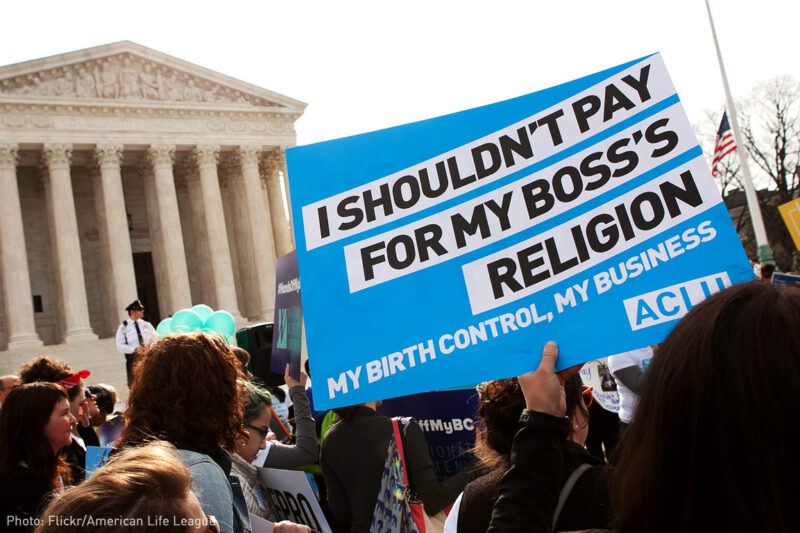Should Your Boss’s Religious Beliefs Dictate Your Health Insurance Coverage? Supreme Court Nominee Judge Gorsuch Thinks So


One of the most popular components of the Affordable Care Act is the requirement that health insurance companies cover birth control without a co-pay. Over 55 million women have benefitted from the coverage. Nevertheless, over the last several years there has been an onslaught of court challenges to the birth control benefit by employers with religious objections to including the coverage in their employees’ health plans.
Judge Neil Gorsuch, President Trump’s pick for the Supreme Court, has played a key role in these cases. In each one he sided with the employers who claimed a right to use their religious beliefs to block their employees’ contraception coverage. In doing so, he showed little regard for the women affected by imposition of their bosses’ religious beliefs, and failed to acknowledge how important contraception coverage is to women’s health and equality.
Round one in the battle against the birth control benefit was brought by arts-and-crafts giant Hobby Lobby, and other for-profit companies, which had a religious objection to providing contraception coverage in their employees’ health plan. Before Hobby Lobby’s case reached the Supreme Court, the Court of Appeals for the Tenth Circuit ruled in favor of Hobby Lobby. In that decision, Judge Gorsuch wrote a separate opinion to underscore that the family that owns Hobby Lobby would be complicit in sin if it allowed their employees’ health insurance company to cover contraception. Judge Gorsuch’s failure to give weight to the harms inflicted on women by these asserted religious exemptions is troubling.
Although the Supreme Court narrowly sided with Hobby Lobby, even the five justices who ruled in favor of Hobby Lobby considered the impact on women employees. The court noted that the government already had a system in place for religiously affiliated non-profit organizations that allowed those employers to opt-out of paying for contraception coverage by filling out a , and instead the health insurance company would pay for the contraception coverage. This opt-out system, the court reasoned, could just be extended to religiously affiliated for-profit companies, and the impact on the employees would be “precisely zero.”
Round two in the battle against the birth control benefit was brought by a nursing home called Little Sisters of the Poor Home for the Aged, and other religiously affiliated non-profit organizations. Those employers objected to the opt-out system itself, arguing that filling out the form to opt out of providing contraception violated their religious beliefs. Eight of the nine courts of appeals to consider these challenges, including the Tenth Circuit, held that filling out a form did not substantially burden the employers’ religious beliefs. But Judge Gorsuch joined an opinion arguing that the Tenth Circuit should reconsider the decision in the Little Sisters of the Poor case siding, once again, with the employer.
When the Litter Sisters case, and others, reached the Supreme Court, under the name , the court did not decide the legal question but instead sent the cases back down to the lower courts to see if there was a way to appease the employers while still ensuring that women received contraception coverage. Again, the Supreme Court recognized the impact on female employees.
Judge Gorsuch’s disregard for the effect on women in these cases is troubling. If an employer blocks its employees’ access to contraception coverage, that employer is discriminating based on sex. Women already pay more for health care than men, and the contraception coverage requirement was designed to reduce that disparity. Equally important, contraception is crucial for women’s equal participation in society. Being able to decide whether and when to have children has a direct effect on women’s ability to make their own paths in terms of their schooling, their careers, and their families.
There is no question that religious liberty is a fundamental value, and one that we fight for here at the ACLU every day. But religious freedom shouldn’t give employers the right to discriminate against their female employees.
So when the Senate considers whether to confirm Judge Gorsuch to the highest court in the land, senators should ask him whether he believes women have the right to decide when to have children, and whether he believes that women should be treated equally in society.

